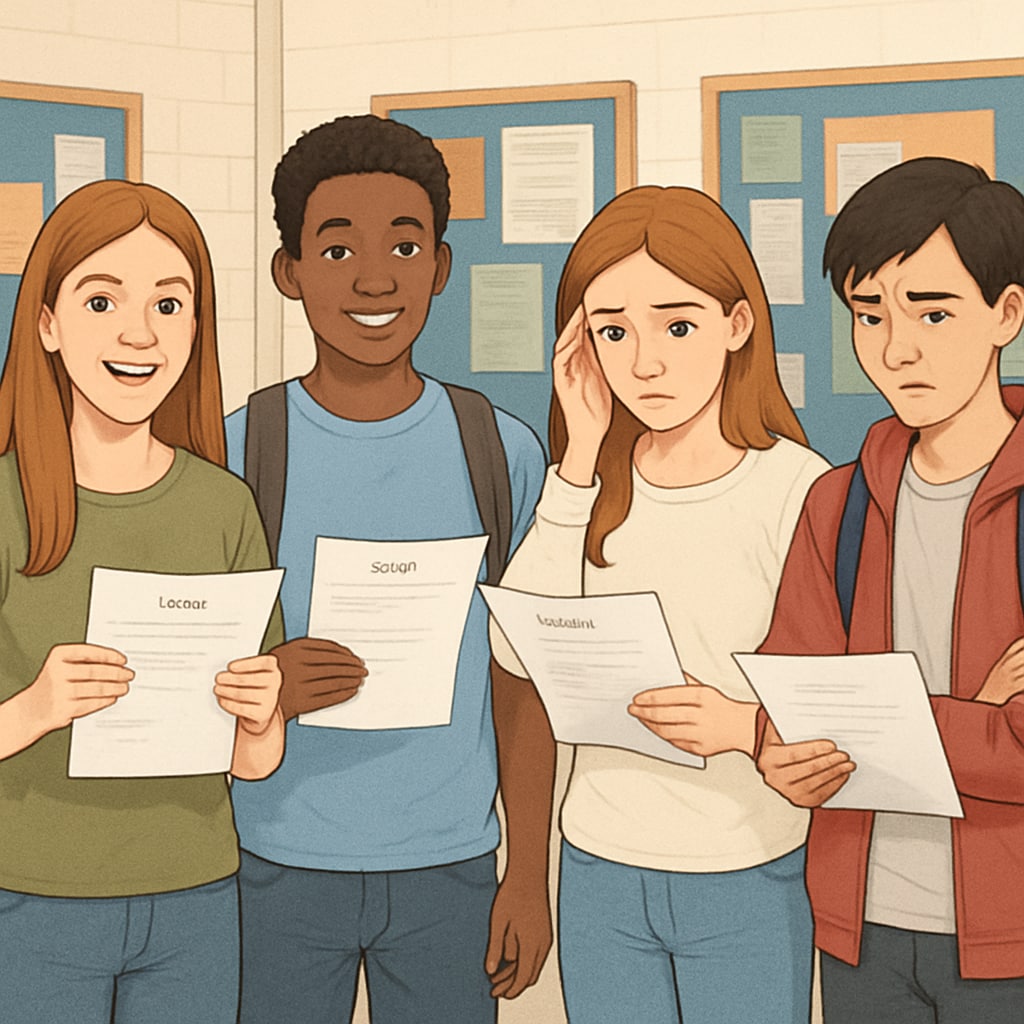For many students, the day GCSE results are released can be filled with strong emotions ranging from excitement to disappointment. When grades fall short of expectations, it’s natural to feel overwhelmed by self-doubt and question your academic abilities. However, it’s crucial to remember that GCSE results, self-doubt, and academic growth are interconnected challenges that can lead to new opportunities. Your grades are just one part of your story, and setbacks can often pave the way for personal and academic growth.

Understanding the Emotional Impact of Low GCSE Results
Receiving lower-than-expected GCSE grades can trigger a range of emotions, such as frustration, embarrassment, or even fear about the future. These feelings are valid, but they don’t have to define your next steps. Self-doubt often stems from comparing yourself to others or internalizing the idea that academic success is the sole measure of worth. This mindset is not only limiting but also inaccurate.
It’s important to process these emotions and recognize that every student faces challenges. According to a study on educational development, resilience and adaptability are key predictors of long-term success—not just grades.
Redefining Success: Why GCSE Results Aren’t Everything
Society often places great emphasis on academic achievement as a measure of intelligence and potential. However, success is a multifaceted concept that includes skills like creativity, emotional intelligence, and perseverance. Many successful individuals experienced setbacks in their educational journeys, using those moments to reevaluate their goals and uncover alternative paths.
Consider this: GCSEs are just one checkpoint in your educational journey. If your results weren’t as high as you’d hoped, it doesn’t mean doors are closed. In fact, it can be an opportunity to explore vocational training, apprenticeships, or alternative qualifications like BTECs. These options emphasize practical skills and can lead to rewarding careers.

Navigating Academic Setbacks: Practical Steps Forward
If you’re feeling uncertain about your future after receiving your GCSE results, here are some actionable steps to help you move forward:
- Reflect and reassess: Take time to review what went wrong. Was it a lack of preparation, time management, or external factors? Identifying these issues can help you improve in the future.
- Seek support: Speak with teachers, career advisors, or mentors who can provide guidance on your next steps. They may suggest alternative routes that align with your strengths.
- Set realistic goals: Whether it’s retaking exams, pursuing further education, or entering the workforce, set clear and achievable objectives to regain momentum.
- Focus on personal growth: Use this experience to build resilience, adaptability, and problem-solving skills. These traits are valuable in any career or life path.
As a psychological concept, resilience is the ability to bounce back from adversity. Developing this skill can help you handle future challenges, whether they’re academic or personal.
Building Confidence Beyond Grades
One of the most significant challenges after receiving disappointing GCSE results is restoring self-confidence. Here are some tips to help you rebuild your sense of worth:
- Acknowledge your strengths: Make a list of skills, talents, or achievements unrelated to academics. These qualities are just as important.
- Learn from role models: Many successful people, like entrepreneur Richard Branson and chef Jamie Oliver, didn’t excel academically but thrived in their chosen fields through determination and passion.
- Surround yourself with positivity: Engage with friends, family, or mentors who encourage and uplift you.
- Stay future-focused: Remember that this is just one moment in your life. Your future success will depend on the choices you make moving forward, not just past results.
By shifting your focus from grades to personal growth, you can redefine what success means to you and build a fulfilling path forward.
Conclusion: Turning Setbacks into Opportunities
It’s natural to feel disappointment when your GCSE results don’t align with your expectations. However, this moment doesn’t define your intelligence, worth, or future potential. By addressing self-doubt, exploring alternative pathways, and focusing on personal development, you can turn this setback into a stepping stone for greater achievements.
Remember, academic growth is a journey, and every step—whether forward or backward—teaches you something valuable. Use this experience to discover your strengths and carve a unique path toward success. The road ahead is yours to shape.
Readability guidance: This article uses accessible language and short paragraphs for clarity. Key points are summarized in lists, and transitions like “however” and “in addition” ensure smooth reading flow.


